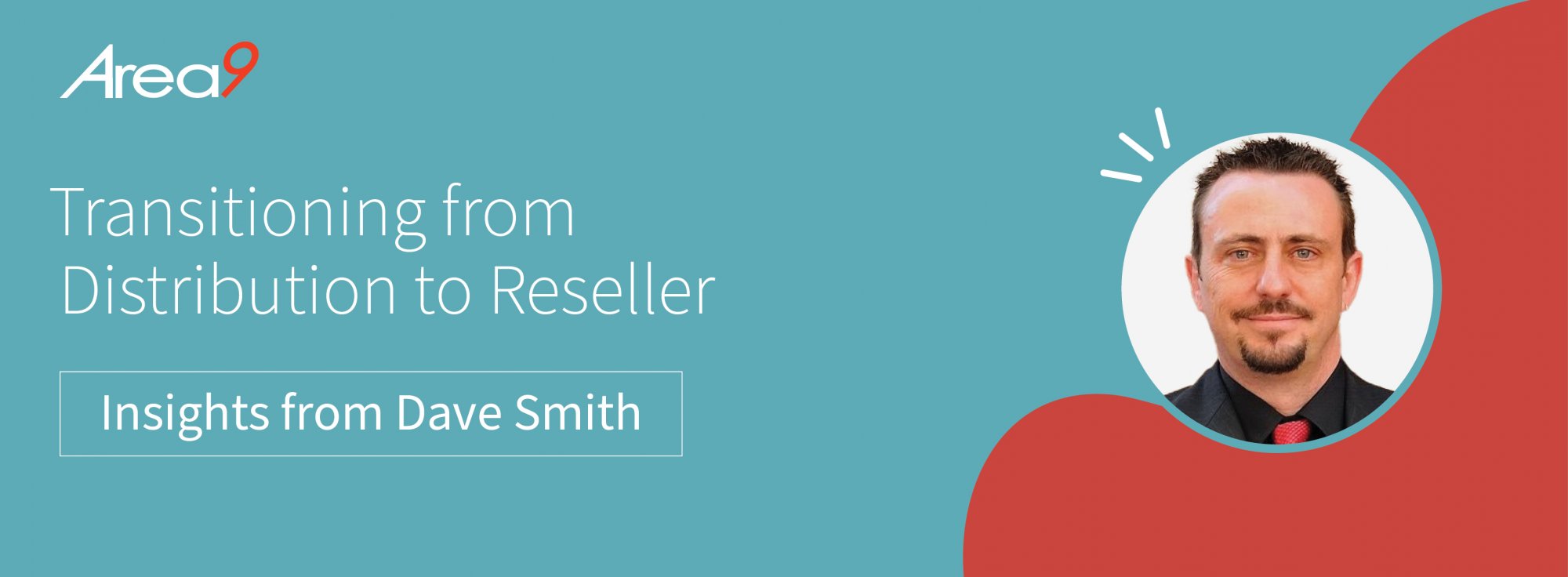
The move from a distributor role to Area9 has been both exciting and eye-opening, largely because it has allowed me to refocus on what really matters in channel interactions.
Joining Area9 has been an opportunity to fundamentally change how I interact with clients, approach challenges, and think about the long-term impact of technology on individuals and businesses alike.
Understanding the Transition
In distribution, my job was to ensure that products moved seamlessly from one point to another. I managed product flow, inventory, and logistics, focusing on making sure resellers and customers had what they needed. It is an incredibly critical cog in the technology supply chain. But it can also feel limiting in terms of the value that I was adding to the technology.
With Area9, I’m not just delivering products. I’m actively a part of my clients' businesses, deeply involved in understanding their unique goals and challenges. It’s a shift from being behind the scenes to working right alongside the client, and it’s been a rewarding transformation.
One of the biggest changes in this transition has been in my mindset. When you work as a partner, your focus expands to include the whole picture. You’re not just checking boxes for inventory or managing orders—you’re thinking about how every solution aligns with the client’s strategic objectives. This shift in perspective has made the work more personal and, at times, more challenging, but also more fulfilling.
In other words, now I’m a trusted advisor rather than just a supplier. Clients depend on me to understand their industry, anticipate their challenges, and adapt solutions that truly make a difference. My role now is as much about offering insights as it is about delivering products. Instead of focusing solely on the logistics, I’m helping clients find long-term solutions, sometimes even ones they hadn’t considered.
Navigating the Challenges of a Partner Role
In distribution, there’s a certain predictability to the work; you know the processes, and there’s a regular flow. But working within a partner, every client engagement is different, and you have to be ready to pivot quickly. You’re often on the front lines, and it takes flexibility and strong problem-solving skills to respond to new issues as they arise.
But perhaps “challenge” isn’t the right word here. It’s more an opportunity. Clients rely on us not just to deliver but to innovate and sometimes come up with quick solutions to unexpected problems. The process isn’t as linear as in distribution, and you have to be prepared for the complexities that come with deep client involvement. That has taken an adjustment, but the satisfaction that comes with delivering has been all the greater.
It also means that I’m constantly learning. Every client brings a new set of insights, and I’m exposed to diverse challenges and opportunities that keep the work fresh and engaging. Whether I’m learning about industry trends or developing innovative solutions, there’s always something new on the horizon. It’s intellectually stimulating in a way that keeps me motivated and invested in the work. It’s also critical, with the pace of change, to stay on top of these things, and I feel like working within a partner is the best place to ensure that you’re right on top of trends and innovation.
To Other Professionals: Things to Consider
My experience with Area9 has already demonstrated for me that this is the place for anyone that genuinely enjoys technology and the transformative role that it can be. For anyone who is thinking about moving from a distribution role to a partner role, I have a few pieces of advice based on my own experiences:
1. Focus on Building Strong Relationships: In a partner role, relationships are everything. Clients need to trust you, and that trust comes from building rapport, showing up consistently, and genuinely caring about their success.
2. Stay Flexible and Adaptable: Client needs are always changing, and it's important to stay adaptable. You have to be ready to pivot quickly and come up with creative solutions. Flexibility is key to thriving in a partner role.
3. Invest in Industry Knowledge: To bring real value to clients, you need a deep understanding of their industry. Take time to learn about the challenges, trends, and nuances of your clients' fields. This knowledge will set you apart and allow you to provide meaningful insights.
4. Think Strategically: As a partner, it's not just about meeting today's needs but about helping clients reach their long-term goals. Keep a strategic mindset, and always think about how each interaction contributes to the client's bigger picture.
If you’re considering this path, I’d say go for it. The work is more dynamic, the relationships are deeper, and the rewards are real. The move from distribution to partnership hasn’t just been a career change – it’s given me an all-new appreciation for what we do in technology.
